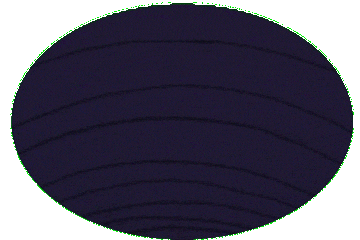Harry Nilsson first met famed music producer Phil Spector at Perry Botkin's office in late 1964. "Phil was walking down the hallway and he heard my demo and he said, 'Who's that?' Turns out that Perry Botkin used to publish Phil when Phil was a teenager, and he said, 'That's Harry Nilsson.' Phil said, 'That's a good song. Did he write it?' Perry said, 'Yeah, well, he and I wrote it.'"[1]
Harry and Phil wrote three songs together[2] - "This Could Be The Night" (recorded by the Modern Folk Quartet), "Paradise" (recorded by the Ronettes and the Shangri Las), and "Here I Sit" (recorded by the Ronettes).
Nilsson later worked with Spector when Phil produced "Nilssonny and Cher" singing "A Love Like Yours" in 1974. Spector also produced John Lennon's original Rock and Roll sessions which Harry attended.
Phil was the most important record producer. I really respect him. He always had to be top dog. He was neurotic and eccentric, and I've seen good and bad stories about him, mostly good.
-- Harry Nilsson (1984) [3]
Harry Nilsson met producer Richard Perry at a party hosted by Phil Spector.
Harvey Phillip Spector (December 26, 1939 – January 16, 2021) was an American record producer and songwriter primarily known for his Wall of Sound production style in the 1960s, followed by his trials and imprisonment for murder after the 2000s. Considered the first music producer auteur, he is the most successful American producer of the 1960s and widely regarded as one of the most influential figures in pop music history. Born in the Bronx, Spector relocated to Los Angeles as a teenager and co-founded the Teddy Bears in 1958, writing their chart-topping single "To Know Him Is to Love Him". With Lester Sill, he co-established Philles Records in 1961, becoming the youngest U.S. label owner at the time, and exerted unprecedented artistic control over his recordings, typically working in collaboration with arranger Jack Nitzsche, engineer Larry Levine, and professional songwriting teams. His studio band, later known as the Wrecking Crew, rose to industry prominence through his success with acts like the Crystals, Darlene Love, the Ronettes, and the Righteous Brothers. Having expanded to film production with The Big T.N.T. Show, he temporarily withdrew from music after recording "River Deep – Mountain High" for Ike & Tina Turner. From 1970 to 1973, he produced the Beatles' Let It Be and solo recordings by John Lennon and George Harrison. He was also briefly head of A&R at the band's Apple Records. By 1980, following album productions for Dion DiMucci (Born to Be with You), Leonard Cohen (Death of a Ladies' Man), and the Ramones (End of the Century), he had entered a period of semi-retirement. Spector ultimately produced nineteen U.S. top-ten singles, including four additional number-ones (the Crystals' "He's a Rebel", the Righteous Brothers' "You've Lost That Lovin' Feelin'", the Beatles' "The Long and Winding Road", and Harrison's "My Sweet Lord"). He is credited with having a significant impact on rock music, the girl group sound, in-studio composition, and the professional function of record producers themselves. He also contributed to the development of music genres and movements such as psychedelia, art rock/pop, noise pop, and shoegaze. In 1989, he was inducted into the Rock And Roll Hall of Fame. After the 1980s, Spector remained largely inactive amid periods of reclusion, substance abuse, and erratic behavior. In 2009, he was convicted of murdering actress Lana Clarkson and sentenced to 19 years to life in prison, where he died in 2021.
This article uses material from the Wikipedia article "Phil Spector", which is released under the Creative Commons Attribution-Share-Alike License 3.0.
- [1] See: One Last Touch of Nilsson
- [2] Most likely, Spector contributed little or nothing to writing the songs
- [3] The Age (Melbourne, Australia), Mike Daly (1984-11-08) "Nilsson Sets the Record Straight for Yoko"
- Sources include Dawn Eden's "One Last Touch of Nilsson" and Curtis Armstrong.





![Phil Spector - The Essential Phil Spector [New CD] SEALED Phil Spector - The Essential Phil Spector [New CD] SEALED](https://i.ebayimg.com/images/g/-EYAAOSwFBxoVw4J/s-l225.jpg)






